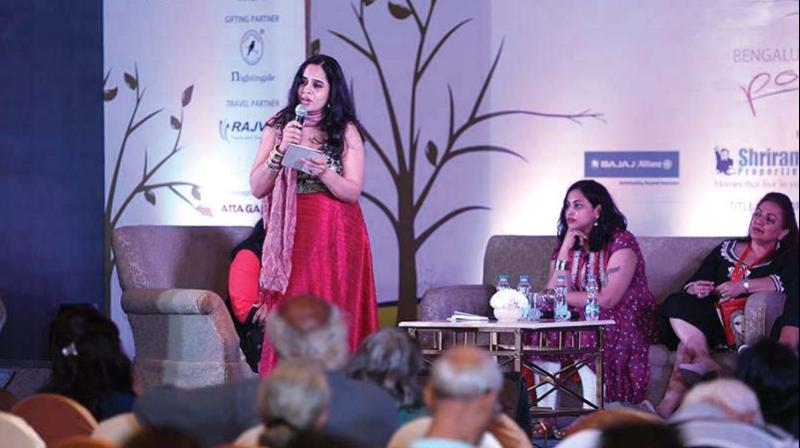Slamming it
Performance poetry as a political statement or social commentary is on the rise in India.

“Poetry is language at its most distilled and most powerful,” Rita Dove, a famous American poet, once said. Over the years, the poetry scene in India is becoming more concrete. With literature festivals blooming, poetry is getting a platform too. In Bengaluru, we have seen three successful editions of the Bengaluru Poetry Festival and the fourth edition is scheduled to be held on July 20 and 21 at The Taj Westend.
Like the previous editions, this edition of the BPF stages eminent artists and poets from across the globe. This year, well-known poets and musicians like Andrea Jeremiah, Sadhguru and Raj Shekar will be part of the free two-day event organised by Atta Galatta.
People are now also witnessing a performance art known as spoken-word or ‘slam’ poetry. Poetry has always existed in two worlds, written and performed. Spoken-word poetry can be a recital or just a rant. But the concept of writing a piece of poetry solely for performance, and of spontaneously responding in verse, is not exactly a novelty to most Indians.
“The urban slam that you’re looking at is so much tamer compared to the poetry in qawwali,” says Manisha Lakhe, co-founder of Caferati, a writer’s forum. “But it is a good thing and we are getting there.” adds Harsh Shah, who performs poetry, adding, “We are in a very experimental stage where we can try a lot of stuff because it is the beginning.”
Social media caught onto the possibilities of the genre after Aranya Johar’s ‘A brown girl’s guide to gender’ come out last year. The sensation it created, allowed a number of other unrecognised poets like Yahya Bootwala to became Internet stars overnight. But using poetry to debate social issues hasn’t gone down well with everyone. “I see hollowness in ‘social cause’ poetry. It’s silly to rant against capitalism and then go order coffee at Starbucks. I’m cynical about poetry written for clicks,” says Anish Vyvhare, owner of Poetry College in Mumbai. He opines, “People speak on topics they have no idea about. They speak about depression and mental illness and advocate on issues they have zero knowledge of.” Harsh Mehta, a poet who also performs at Habitat, thinks the criticism is misplaced. He says there are several poets who have gained recognition for the quality of their work, not because they espouse social concerns.
Spoken poetry maybe in its infancy but it’s already attracting some commercial interest. Vyavhare thinks it is bizarre that poets want to be paid by people to watch them perform or read. “No one asked me to do poetry for them, I do it for myself. For me to go and ask the world to pay me for it is ridiculous,” he says.
Whatever the criticism, there is no denying the fact that there is a growing audience who are interested in poetry reading; and that should be music to the ears of every lover of the written word.

